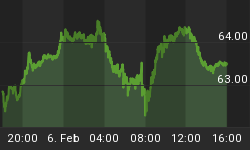What has happened since last August, is a very typical thing to the banking industry from time to time, about 5 years apart on average. Even each time the headline is totally different. In 1987, it was program trading. 1991 was S&L, and 1998 belonged to LTCM and Asian crisis, and 2001 buzzword was internet. This time it is all around the most important 6-letter word "credit". Credit is the lifeblood for all financial markets of all parties and products. Once credit goes bad, everything goes bad. When blood stops, everything dies. Without it, counterparty risk goes to infinity. Without it, there is no liquidity, no market, no price, thus value of financial products goes to zero. This is why in my previous particle here I totally concur with George Soros' statement and assessment that this is the worst financial crisis in 60 years.
This time is different than previous crisis of 1987, 1991 etc. that we heard one shoe dropping, and had to wait forever for the other one to drop. Those were more individual isolated cases, regions and sectors. Today, we are hearing shoes dropping left and right, across the board and globally. When it rains, it pours. A month ago, when everyone thought Lehman had dodged the bullet on subprime, who would have thought and heard of ARS (auction rate securities)? Then for Goldman, nice profit last quarter, the infallible king of all kings, now we are learning VIE (variable interest entities) trouble, possibly $11B write-downs. Who knows how many more skeletons in the closet? What will the next dropping shoe be called? By the time we finish this in a few years, it will probably rotate through and cover the whole spectrum of all financial products.
Of all products, I still maintain CDS (credit default swap) is the most abusive one, and much bigger trouble is yet to come, due to layers of layers of unknown counterparty risk, impossible to unwind. As Warren buffet said "large amounts of risk, particularly credit risk, have been concentrated in the hands of relatively few derivatives dealers, who in addition trade extensively with one another. The trouble of one could quickly infect the others". And I haven't mentioned the commercial real estate which has extreme difficulty to get refinancing these days, the alt-A tier of residential mortgage, the consumer credit time bomb, especially the upcoming credit card delinquency crisis which is unsecured, and there is no way to be recovered and repossessed like houses. It definitely looks like a scene of slow moving train wreck of the whole banking industry.
Let us just look at Citigroup. The Wall Street earnings consensus is $2.91 for 2008 and $3.66 for 2009. It doesn't look like it is going to happen now. Actually the latest 2008 earnings estimate from Meredith Whitney of Oppenheimer is $0.75, which she even feels "optimistic". Only a few months ago, her estimate was almost four times higher and this is from one of the best analysts on Citigroup who has repeatedly made the correct calls. So you can imagine how difficult it is to provide a fair valuation to investment banks since there is no way to put values to all their derivative holdings not even on their balance sheets. Next year's earning figure? Who knows? It is anyone's guess, just grab a number from the air. Maybe still $3.66, but with a big negative sign before it. Whitney's target for Citi now is below $16. A month ago, I heard a few traders even betting Citi will eventually go to single digit. That could be stretching, but I still feel two of "My 10 Predictions for 2008" published here in December stand a decent chance to be true this year, thus a credit card delinquency crisis for banks and Citigroup going to teens.















